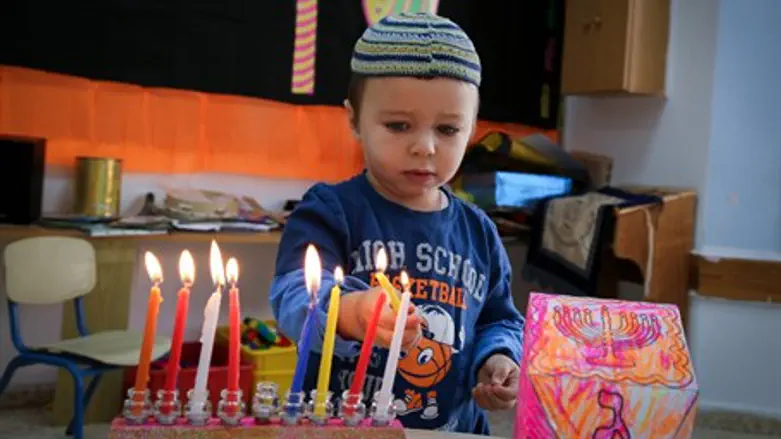
Parents often give children some money, or Hanukkah gelt, over the holiday of Hanukkah. According to Paamonim, this is a perfect opportunity to open a dialogue with children about money.
Paamonim is a non-profit organization that strives to achieve a situation in which Israeli families conduct their economic lives with balance, responsibility and integrity, thereby helping to strengthen Israel’s economic and social fabric.
Have you ever found yourself, while giving some spending money to your kids, making statements such as, “don’t spend it all on junk”, or “if you save it up, you'll be able to purchase something really big later on,”?
According to Paamonim, often parents do not educate their children enough with regards to financial matters, and let their children spend the money which they receive as they see fit.
In an effort to combat that issue, Paamonim has developed a new game which can be downloaded from their website to help open the dialogue about money matters between parents and children, in a fun and imaginative way. The name of the game is a clever play on words in Hebrew, and is called Tik-Tak-Tziv (taktziv is Hebrew for "budget".)
“Every family can use it to help teach their children how to properly use money,” Sharon Levin, Director of Group Activities at Paamonim told Arutz Sheva. “The game helps the children, as well as the parents grasp how to deal with financial issues within the family.”
Levin explained a bit about how the game works. “Each person in the family receives a budget, and they have to decide whether to make purchases or to save their money.”
Included in the game are twists of fortune, that teach children how to prepare for unexpected expenses, how to pay bills, which expenses are shared and which expenses are personal. The game is suitable for children ages five to the end of middle school, and often the engages the players in lively conversations by placing them in mock decision-making situations where a player needs to choose between “I want something” and the item being “too expensive.”
Levin said that another aspect of the game is to open a dialogue about money matters, a topic not often talked about by parents and their children.
“The game gives knowledge and tools to children about how to use money properly. And it does it in a fun and engaging way,” Levin remarked.
Appropriately, the game itself does not cost money, and is easily downloaded. To prepare the game parents will need a printer, and commonly found household items.
“We chose to launch this project around the time of Hanukkah, as often families give spending money to their children, and often the neither the children nor the parents know how they should properly use it.”
Paamonim provides assistance to individuals, families, groups and organizations, seeking economic education and counseling and interested in acquiring financial knowledge and tools, changing their consumer habits and taking economic responsibility. The organization has thousands of specially-trained volunteers who work with families and individuals and provide them with economic coaching according to their needs and abilities.